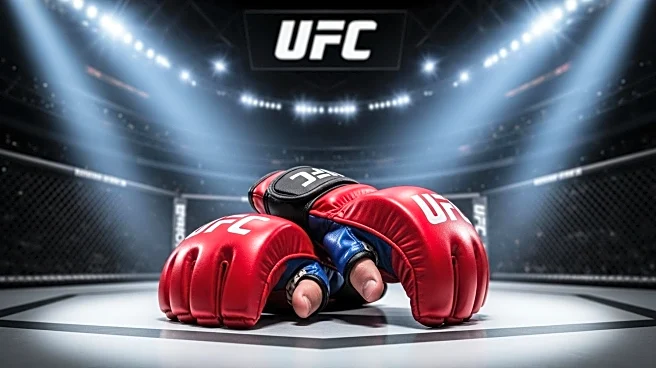What's Happening?
The UFC returned to Rio de Janeiro, hosting a 13-fight card at Farmasi Arena. The event was headlined by Charles Oliveira, a former lightweight champion, who faced Mateusz Gamrot. Oliveira, fighting in his home country, secured a victory by submitting Gamrot in the second round. The event was notable for its high number of finishes, with nine out of thirteen fights ending before the final bell. The judges were rarely needed, as the fighters delivered decisive performances throughout the night.
Why It's Important?
Charles Oliveira's victory is significant as it reaffirms his status as a top contender in the lightweight division. His performance in Rio de Janeiro, a city with a rich history in mixed martial arts, highlights his skill and popularity among Brazilian fans. The event also underscores the UFC's commitment to international events, particularly in Brazil, which is a key market for the promotion. The high number of finishes may attract more viewers and increase interest in future UFC events.
What's Next?
Following his victory, Charles Oliveira may be positioned for another title shot in the lightweight division. The UFC will likely continue to host events in Brazil, capitalizing on the country's passionate fan base. Fighters who performed well at UFC Rio, such as Oliveira, may see increased opportunities and higher-profile matchups in upcoming events. The UFC's focus on international markets suggests more events in diverse locations, potentially expanding its global reach.
Beyond the Headlines
The event in Rio de Janeiro highlights the cultural significance of mixed martial arts in Brazil, where the sport has deep roots. The success of Brazilian fighters at the event may inspire a new generation of athletes in the country. Additionally, the UFC's international strategy, including events in Brazil, reflects the growing globalization of the sport, which could lead to increased cross-cultural exchanges and collaborations within the MMA community.









